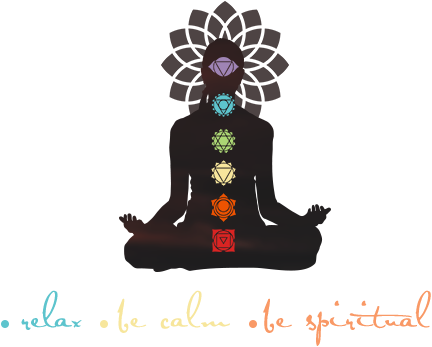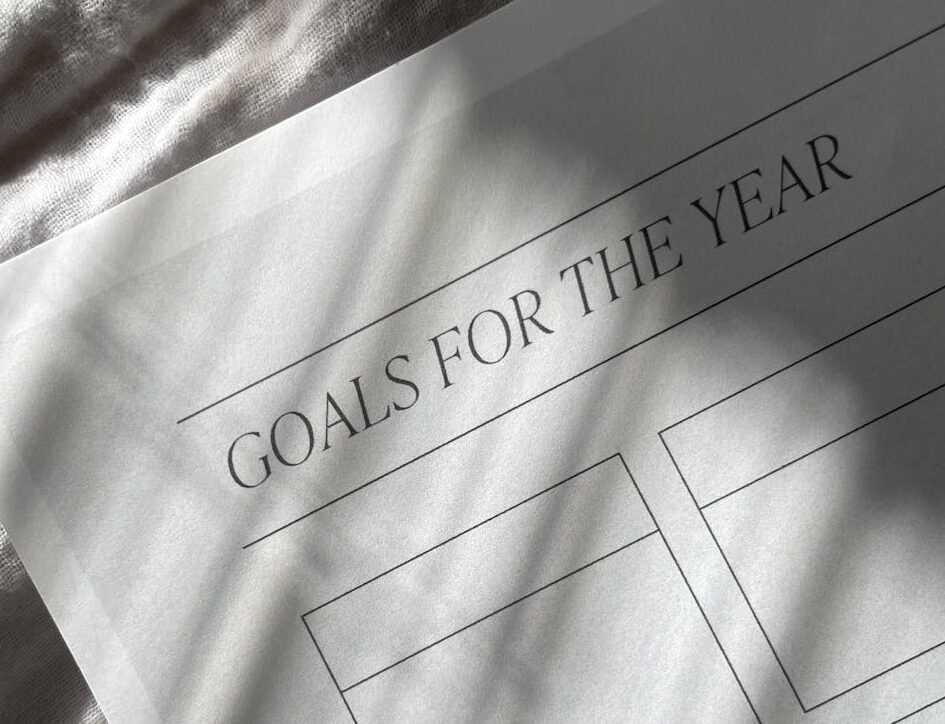Introduction: The Power of Exploring Your Shadow We all have parts of ourselves we try to hide – the thoughts we push away, the...
Introduction: The Comparison Trap in Health and Wellness
You’re scrolling through social media, and there it is – the “ideal” picture of health. Someone waking up at 5 a.m. for a workout, sipping a green smoothie, and smiling effortlessly as they complete their 10-step morning routine. Meanwhile, you’re sitting on the couch, debating whether to even bother making a healthy dinner or just pouring yourself a bowl of cereal (or bag of chips, or carton of ice cream). Sound familiar?
It’s easy to feel like you’re behind or doing it all wrong when you compare your health journey to someone else’s. We live in a world where wellness is often portrayed as an aesthetic – one that’s carefully curated, filtered, and wrapped in a bow of discipline and perfection. But here’s the truth: health isn’t one-size-fits-all. And the more we try to squeeze ourselves into someone else’s definition of wellness, the further we drift from what actually feels good for us.
So let’s change the conversation. Instead of chasing a version of health that was never meant for you, let’s talk about how to define health on your own terms – without comparison, guilt, or pressure to fit an unrealistic mold.
Why We Fall Into the Comparison Trap
Social Media and the Illusion of Perfection
Instagram and TikTok make wellness look effortless (to seemingly everyone but ourselves). Every post seems to feature someone glowing with vitality, thriving on raw juices, intense workouts, and “clean” eating. But what we don’t see? The full picture. The struggles. The genetics. The privilege. The behind-the-scenes reality that’s conveniently left out of the frame.

We also don’t think about how those moments are snapshots that are intentionally curated to convey a specific message. There are a lot of times when those moments aren’t even real. They’re made to present the person showing them in a specific light. After the word came out that TikTok’s time was limited, tons of influencers came out with their dirty little ‘confessions’ about how they didn’t actually eat the meals, drink the drinks, do the workouts, etc. that they posted about day in and day out…the exact things that gained them all their followers.
We compare our messy, real-life experiences to someone else’s highlight reel (or made up fantasies) and assume we’re failing. But the truth is, what works for them might not work for you – because you have different needs, preferences, responsibilities, and starting points.
Cultural and Societal Expectations of Health
For decades, mainstream wellness has been narrowly defined. Thinness has been equated with health, despite science proving that health is far more complex than a number on the scale. Hustle culture has told us that pushing harder is always better, even when our bodies beg for rest.
The problem? These definitions were never designed to include everyone. They overlook factors like mental health, accessibility, chronic conditions, cultural differences, and personal values. If you’ve ever felt like “traditional” wellness advice doesn’t quite fit, you’re not broken – it’s the system that’s flawed.
Despite evidence showing that women should prioritize strength and muscle, society teaches us that they’re supposed to be ‘petite’ and that muscle will make you look too ‘manly’ and unattractive.
We’re supposed to get on board with the latest diet and fitness trends whether that’s keto, CrossFit, or training for a marathon. There are so many ‘shoulds’ that are impressed upon us and it leads us to lose sight of ourselves and what fits in our lives.
My Own Wake-Up Call
I’ve been there, too. There was a time when I tried so hard to keep up with what seemed to work for everyone else. I chased an image of wellness that never actually made me feel well. I was trying to do exercises that didn’t agree with my body or it’s medical limitations. I was striving for an ideal that not only made me disheartened, but made me detest everything surrounding the journey to it. It wasn’t until I started listening to my body – rather than forcing it to conform to an external ideal – that I discovered what true health felt like. And spoiler alert: it looked nothing like what I had once believed.
It didn’t mean trying to run marathons just because other people. Nor did it mean shorting myself on sleep so that I could workout when others said I should. It meant finding what I loved and what made me feel good, even if it was different from what the influencer’s said I “should”
What Health Really Means (Hint: It’s Not Just Physical)
Health Is More Than Diet and Exercise
Let’s get one thing straight: being “healthy” isn’t just about eating kale and hitting the gym. True wellness is multi-dimensional. It includes:
- Mental health – Are you managing stress? Do you feel at peace?
- Emotional well-being – Are you kind to yourself? Are you processing your emotions in a healthy way?
- Social health – Do your relationships support and uplift you?
- Spiritual health – Do you feel connected to something bigger than yourself, whether that’s nature, community, or a personal practice?
- Financial health – Do you feel secure in being able to provide for your needs?
If you’re eating the “perfect” diet but you’re miserable, isolated, and exhausted, is that really health? Following strict regiments in the pursuit of health can be isolating. If you’re feeling that way, it might be time to reevaluate what’s really important and aligned with your inner knowing.

Tip: Don’t know where to start? Take the wellness assessment that helps you look at all areas of your life and where the imbalances lie
Health Is Not a Destination- It’s a Relationship
A huge mindset shift happens when you stop seeing health as something to “achieve” and start viewing it as an evolving relationship. Just like any relationship, your connection with your health requires attention, flexibility, and compassion. It will change over time. What worked for you at 25 might not work for you at 40. And that’s okay.
How to Create Your Own Definition of Health
Step 1: Identify What You Value Most
Forget what you’ve been told health should look like. What does feeling well actually mean to you? Let go of the preconceived notions or what you’ve seen on social media. Instead, really dig deep and find your true definitions.
Take a moment and ask yourself:
When I think of a truly healthy life, what comes to mind?
What do I want to feel like in my daily life?
What brings me joy, energy, and a sense of balance?
For some, it might be hiking and home-cooked meals. For others, it’s slow mornings, deep conversations, and dancing in the kitchen. Some might feel their best when they surround themselves with others, while others thrive in their solitude. Think about what fills your cup and makes you feel most alive. There’s no right answer – only your answer.
Step 2: Dismantle the “Shoulds”
One of the biggest obstacles to defining your own health is the list of “shoulds” running through your mind. I, for one, am TERRIBLE at falling prey to this. Society has a great way of imposing these on us, and it’s very hard for us to not take them to heart. Some things that we often think we “should” be doing include:
I should wake up early to work out.
I should be eating less carbs.
I should be more disciplined.
But where did these rules come from? Who decided they were the standard? And do they actually work for you? When I started asking myself these questions, I came up with answers like “my body feels nauseous with too much movement in the morning, so I work out in the early afternoon instead”… “Complex carbs are a necessary component to improve my workouts and keep things regular, so I make sure I get them”…”I don’t have to have the perfect diet 24/7 just because I’m a dietitian. I can give myself some grace and practice what I preach with the 80/20 rule).
Here’s a radical idea: health should feel supportive, not restrictive. If a certain wellness practice makes you feel miserable, it’s not your definition of health – it’s someone else’s. And you’re allowed to let it go.
Step 3: Listen to Your Body and Mind
Your body is always communicating with you. The problem is, we’ve been conditioned to ignore it in favor of external advice. But real health comes from tuning back in.
Start small:
How do you feel after eating certain foods? Energized? Sluggish? Satisfied?
What movement brings you joy instead of feeling like a punishment?
When do you feel the most balanced and alive?
No one knows your body better than you. And the more you listen, the more you’ll be able to create a version of health that’s actually sustainable. Not only that, but you’ll enjoy your health and wellness journey instead of feeling like it’s some form of obligation or torture.
Practical Steps to Stop Comparing and Start Thriving
- Curate Your Social Media – Unfollow accounts that make you feel “less than” and fill your feed with diverse, realistic representations of health.
- Find Expanders, Not Idols – Instead of comparing, look for people who inspire you to embrace your unique wellness journey.
- Redefine Success – Instead of measuring health by weight loss or aesthetics, focus on internal wins: more energy, better sleep, less stress.
- Broaden Your Horizons – Be adventurous and try something new! A new kind of physical activity, a new mindfulness technique, join a class or group, read a new book, try out some online art lessons. By trying new things, you might find ways to add more to your health journey that you never knew you’d love
Conclusion: Your Health, Your Rules
Health isn’t about chasing someone else’s version of wellness. It’s about crafting a life that feels good, works for you, and evolves as you do.
So take a deep breath and let go of the comparison trap. You don’t have to fit into a mold that was never meant for you. Your body, your mind, your soul – they all deserve a version of health that’s uniquely yours.
Now tell me – what does your definition of health look like? Drop a comment below, or take a moment to journal on it. Because your health, your rules. And that’s a beautiful thing.






